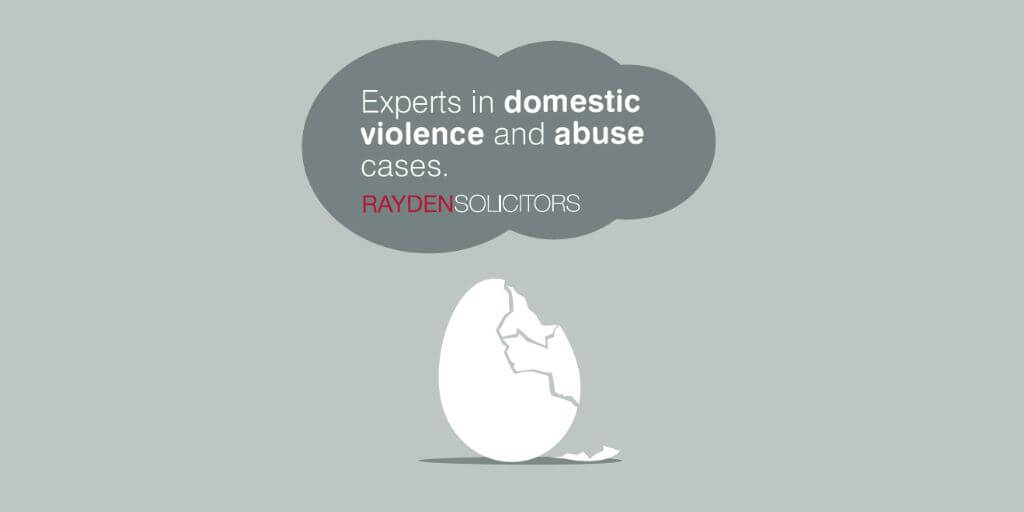In a series of blogs Legal Director, Nicola Meldrum, joins with guest author Sunita Anderson who is a survivor of domestic violence and now coaches and mentors other survivors through domestic abuse recovery. Together they look into what domestic violence is, the different forms it can take and the route out of an abusive relationship.
In our previous blogs Sunita and I have looked at what domestic violence is, the different forms it can take and the obstacles that victims of domestic abuse often face in their journey to seeking help.
In this blog, I focus on the post-awareness part of the journey and consider what legal help is available to victims of domestic abuse in the family law setting.
What protection is available?
It is important to note that if you feel you are in an emergency situation and at risk of immediate harm you should call the police. Although the Family Court offers protection and urgent applications are possible, these are not immediate.
For many victims, however, the situation they face won’t require immediate assistance or they may have called the police already and now require longer term protection. This is where the Family Court can help.
Under Part IV of the Family Law Act 1996 victims of domestic abuse can obtain an injunction in order to secure their safety.
The first type is called a non-molestation order.
The term molestation is a general term which covers a number of behaviours. It includes violent behaviour, threats of violence, harassment, sexual assault, intimidating behaviour, verbal abuse and offensive communication (for example offensive communication via email and text messages).
A non-molestation order itself prohibits the abuser from doing one or a number of the above behaviours to the victim and will be tailored to the individual circumstances. Typically it would include preventing a partner, former partner or associated person from being violent or threatening violence. It can also prevent someone from being intimidating, harassing or pestering the victim directly or indirectly via the phone, email or social media.
A non-molestation order can protect the person applying for it and a child.
A breach of this type of order is a criminal offence although it is also possible to deal with a breach through the Family Court.
The second type of order is an occupation order.
An occupation order relates to the occupation of the family home. An order like this can require the abuser to leave the home and not return allowing the victim to live there without them. In some cases it can prevent the abuser coming within a certain distance of the house. An occupation order can also allow a victim to return to the home if they had left without the perpetrator living there.
Alternatively, an occupation order can regulate the occupation of the home, for example, by preventing someone from entering certain parts of the property at certain times.
The steps to obtaining one of these orders
Before a court will make either of these orders, there will be a number of factors they will consider and weigh up. Firstly, they will want to ensure that you are an “associated person” which is defined in the legislation. This is usually straightforward and includes:
- If you are or have been married to each other;
- If you are or have been civil partners;
- If you are or have been cohabitants;
- If you live or have lived in the same household (except in some specific formal circumstances);
- If you are relatives;
- If you have agreed to marry or form a civil partnership, even if that agreement has now ended;
- If you have a child together or you share parental responsibility for a child together;
- If you are parties to the same Family Court proceedings;
- If you have had an intimate relationship with each other for a significant duration.
The court will then consider the evidence before them and undertake a balance of harm assessment to decide what order to make.
Every situation is different and unique to the victim and that is why it is so important that someone experiencing domestic abuse and hoping to secure one of these orders takes legal advice from a specialist family law solicitor as early as possible. A specialist solicitor can then go through all of these factors on an individual basis and come up with a strategy which is unique to that person.
At Rayden Solicitors we have a wealth of expertise and experience in making these types of applications. I recognise that contacting a solicitor will be a hugely daunting but a skilled, specialist family solicitor should be very aware of how hard this is. At Rayden Solicitors it is important to us that we approach the meeting sensitively and we will be guided by you as to how you feel able to share the information.
If you would like to discuss any of the above in more detail, please do not hesitate to send Nicola or Sunita an email.
















